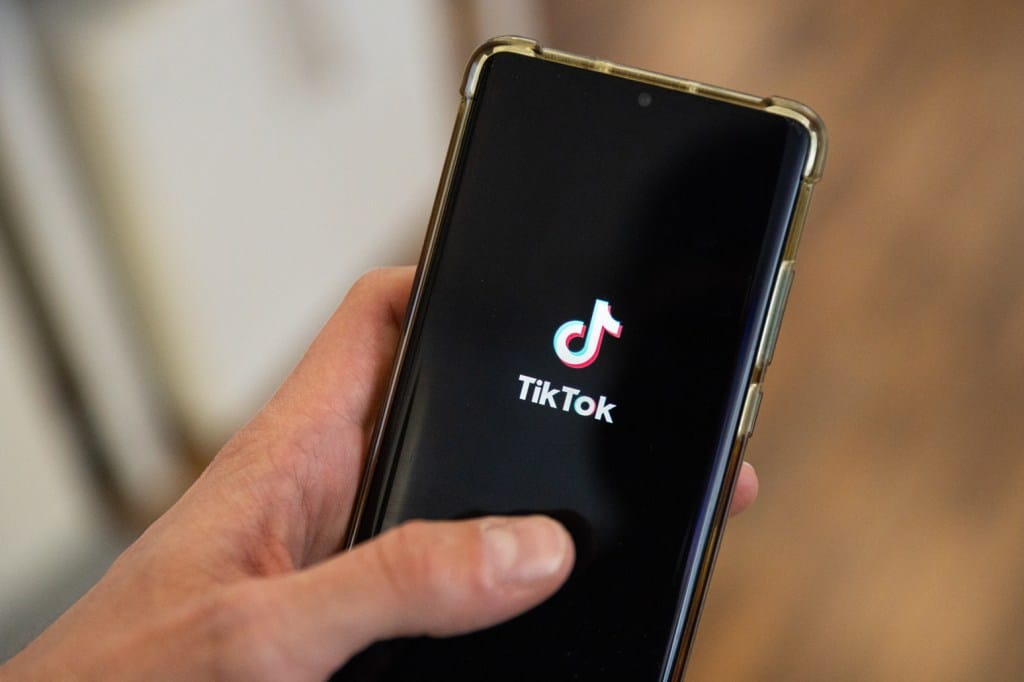TikTok Says It’s Restoring Service to U.S. Users Following Trump’s Pledged Executive Order
Written by djfrosty on January 19, 2025

TikTok said Sunday (Jan. 19) it was restoring service to users in the United States just hours after the popular video-sharing platform went dark in response to a federal ban, which President-elect Donald Trump said he would try to pause by executive order on his first day in office.
Trump said he planned to issue the order to give TikTok’s China-based parent company more time to find an approved buyer before the ban takes full effect. He announced the move on his Truth Social account as millions of U.S. TikTok users awoke to discover they could no longer access the TikTok app or platform.
Google and Apple removed the app from their digital stores to comply with the law, which required them to do so if TikTok parent company ByteDance didn’t sell its U.S. operation by Sunday. The law, which passed with wide bipartisan support in April, allows for steep fines.
Trending on Billboard
The company that runs TikTok in the U.S. said in a post on X that Trump’s post had provided “the necessary clarity and assurance to our service providers that they will face no penalties providing TikTok to over 170 million Americans.”
Some users reported soon after TikTok’s statement that the app was working again, and TikTok’s website appeared to be functioning for at least some people. Even as TikTok was flickering back on, it remained unavailable for download in Apple and Google’s app stores. Neither Apple or Google responded to messages seeking comment Sunday.
The law that took effect Sunday required ByteDance to cut ties with the platform’s U.S. operations due to national security concerns posed by the app’s Chinese roots. However, the statute gave the sitting president authority to grant a 90-day extension if a viable sale was underway.
Although investors made a few offers, ByteDance previously said it would not sell. Trump said his order would “extend the period of time before the law’s prohibitions take effect” and “confirm that there will be no liability for any company that helped keep TikTok from going dark before my order.”
“Americans deserve to see our exciting Inauguration on Monday, as well as other events and conversations,” Trump wrote.
It was not immediately clear how Trump’s promised action would fare from a legal standpoint since the U.S. Supreme Court unanimously upheld the ban on Friday (Jan. 17) and the statute came into force the day before Trump’s return to the White House.
Some lawmakers who voted for the sale-of-ban law, including some of Trump’s fellow Republicans, remain in favor of it. Sen. Tom Cotton of Arkansas warned companies Sunday not to provide TikTok with the technical support it needs to function as it did before.
“Any company that hosts, distributes, services, or otherwise facilitates communist-controlled TikTok could face hundreds of billions of dollars of ruinous liability under the law, not just from (the Justice Department), but also under securities law, shareholder lawsuits, and state AGs,” Cotton wrote on X. “Think about it.”
The on-and-off availability of TikTok came after the Supreme Court ruled that the risk to national security posed by TikTok’s ties to China outweighed concerns about limiting speech by the app or its millions of U.S. users.
When TikTok users in the U.S. tried to watch or post videos on the platform as of Saturday night, they saw a pop-up message under the headline, “Sorry, TikTok isn’t available right now.”
“A law banning TikTok has been enacted in the U.S.,” the message said. “Unfortunately that means you can’t use TikTok for now.”
The service interruption TikTok instituted hours early caught many users by surprise. Experts had said the law as written did not require TikTok to take down its platform, only for app stores to remove it. Current users had been expected to continue to have access to videos until a lack of updates caused the app to stop working.
“The community on TikTok is like nothing else, so it’s weird to not have that anymore,” content creator Tiffany Watson, 20, said Sunday.
Watson said she had been in denial about the looming shutdown and with the space time on her hands plans to focus on bolstering her presence on Instagram and YouTube.
“There are still people out there who want beauty content,” Watson said.
The company’s app also was removed late Saturday from prominent app stores. Apple told customers with its devices that it also took down other apps developed by ByteDance. They included Lemon8, which some influencers had promoted as a TikTok alternative, the popular video editing app CapCut and photo editor Hypic.
“Apple is obligated to follow the laws in the jurisdictions where it operates,” the company said.
Trump’s plan to spare TikTok on his first day in office reflected the ban’s coincidental timing and the unusual mix of political considerations surrounding a social media platform that first gained popularity with often silly videos featuring dances and music clips.
During his first presidential term, Trump in 2020 issued executive orders banning TikTok and the Chinese messaging app WeChat, moves that courts subsequently blocked. When momentum for a ban emerged in Congress last year, however, he opposed the legislation. Trump has since credited TikTok with helping him win support from young voters in last year’s presidential election.
Despite its own part in getting the nationwide ban enacted, the Biden administration stressed in recent days that it did not intend to implement or enforce the ban before Trump takes office on Monday.
In the nine months since Congress passed the sale-or-ban law, no clear buyers emerged, and ByteDance publicly insisted it would not sell TikTok. But Trump said he hoped his administration could facilitate a deal to “save” the app.
TikTok CEO Shou Chew is expected to attend Trump’s inauguration with a prime seating location.
Chew posted a video late Saturday thanking Trump for his commitment to work with the company to keep the app available in the U.S. and taking a “strong stand for the First Amendment and against arbitrary censorship.”
Trump’s choice for national security adviser, Michael Waltz, told CBS News on Sunday that the president-elect discussed TikTok going dark in the U.S. during a weekend call with Chinese President Xi Jinping “and they agreed to work together on this.”
On Saturday, artificial intelligence startup Perplexity AI submitted a proposal to ByteDance to create a new entity that merges Perplexity with TikTok’s U.S. business, according to a person familiar with the matter.
Perplexity is not asking to purchase the ByteDance algorithm that feeds TikTok user’s videos based on their interests and has made the platform such a phenomenon.
Other investors also eyed TikTok. Shark Tank star Kevin O’Leary recently said a consortium of investors that he and billionaire Frank McCourt offered ByteDance $20 billion in cash. Trump’s former treasury secretary, Steven Mnuchin, also said last year that he was putting together an investor group to buy TikTok.
In Washington, lawmakers and administration officials have long raised concerns about TikTok, warning the algorithm that fuels what users see is vulnerable to manipulation by Chinese authorities. But to date, the U.S. has not publicly provided evidence of TikTok handing user data to Chinese authorities or tinkering with its algorithm to benefit Chinese interests.

 State Champ Radio
State Champ Radio 




